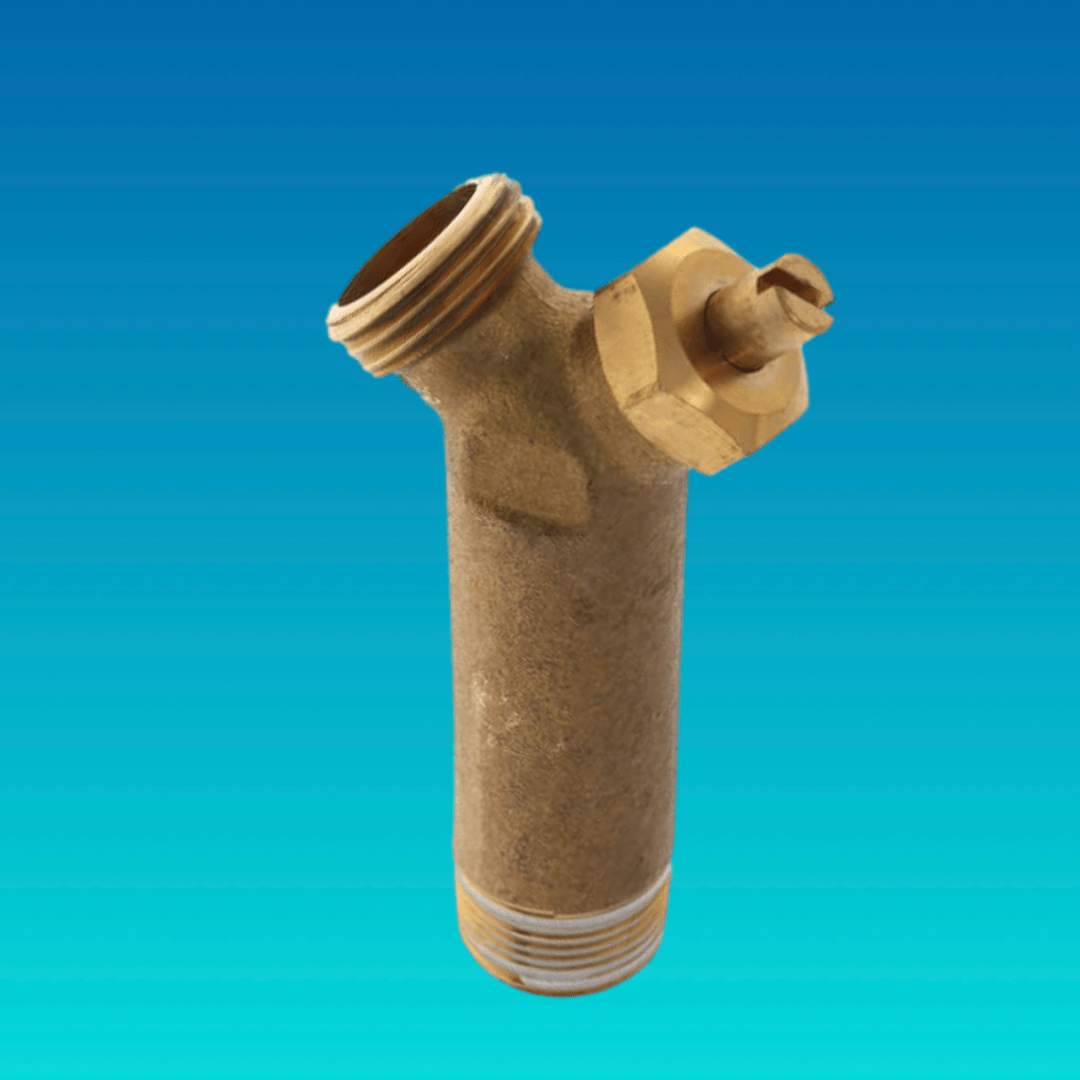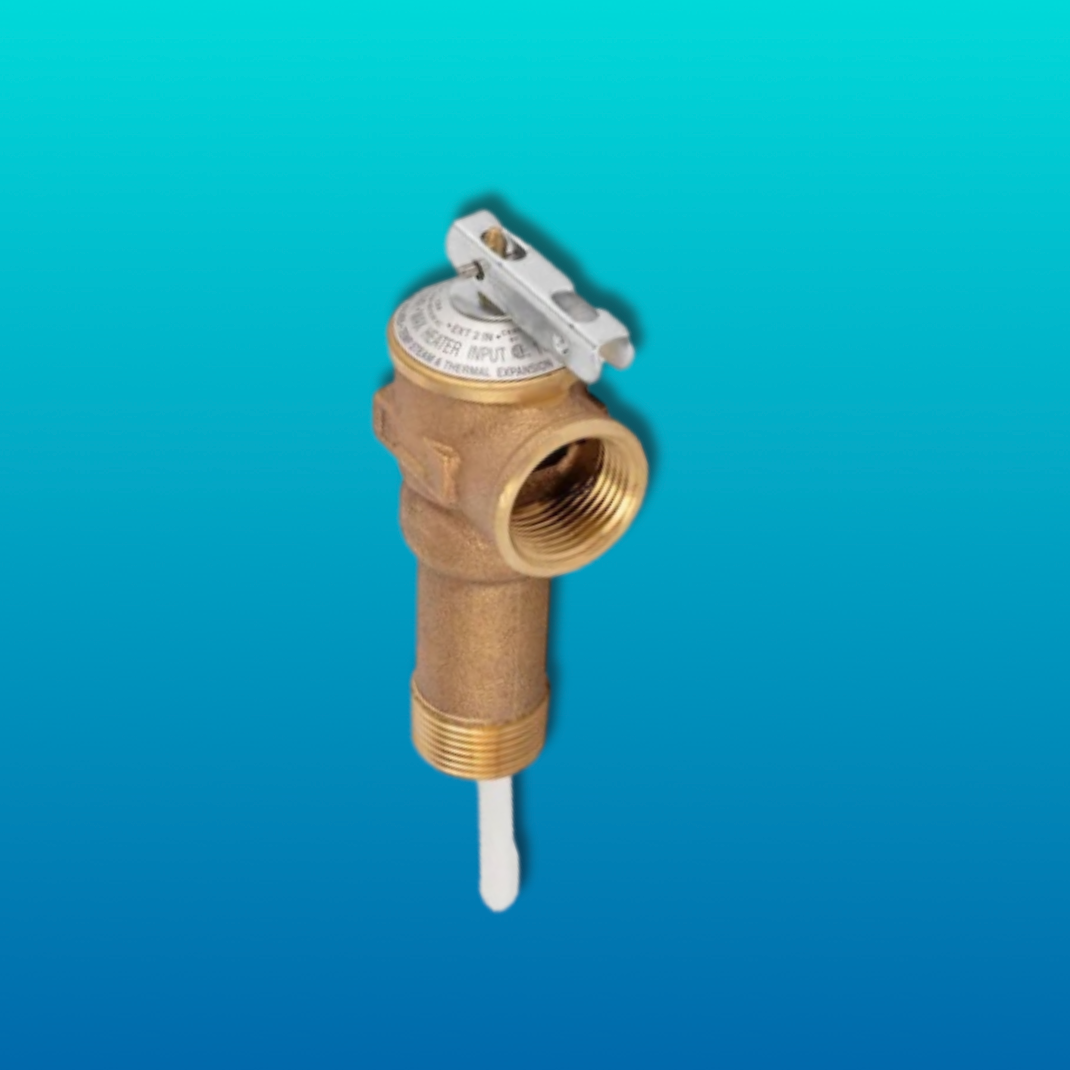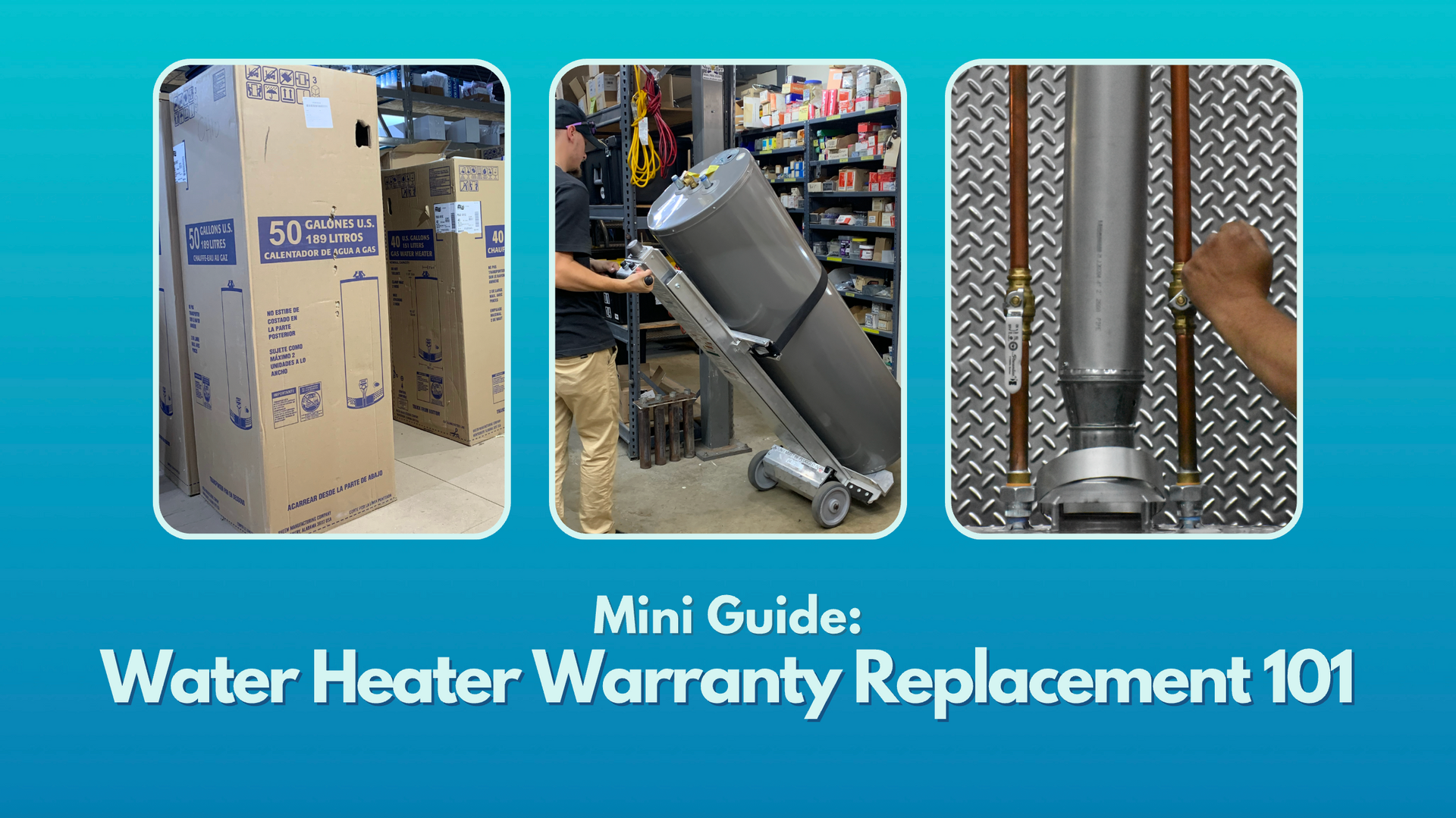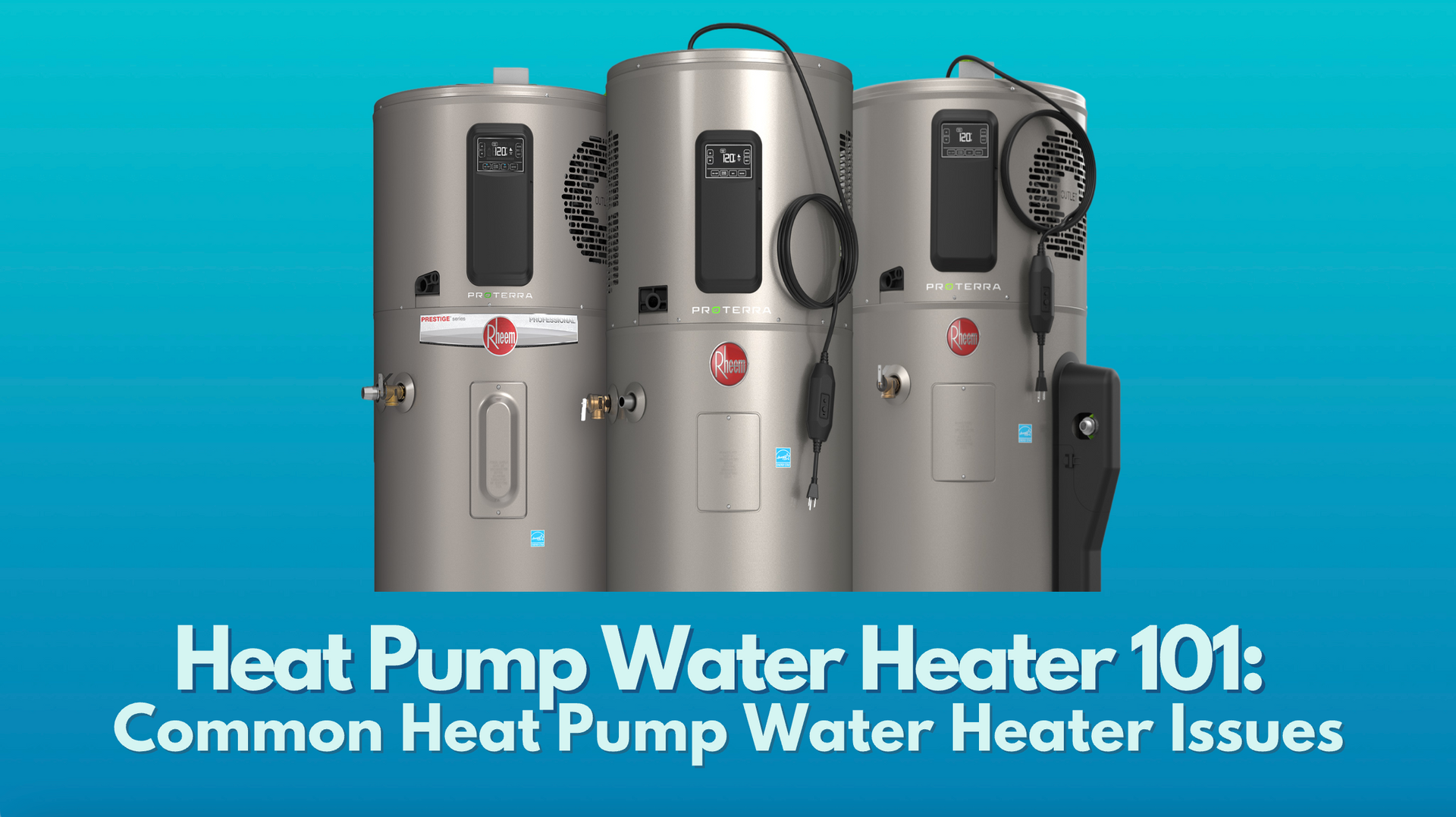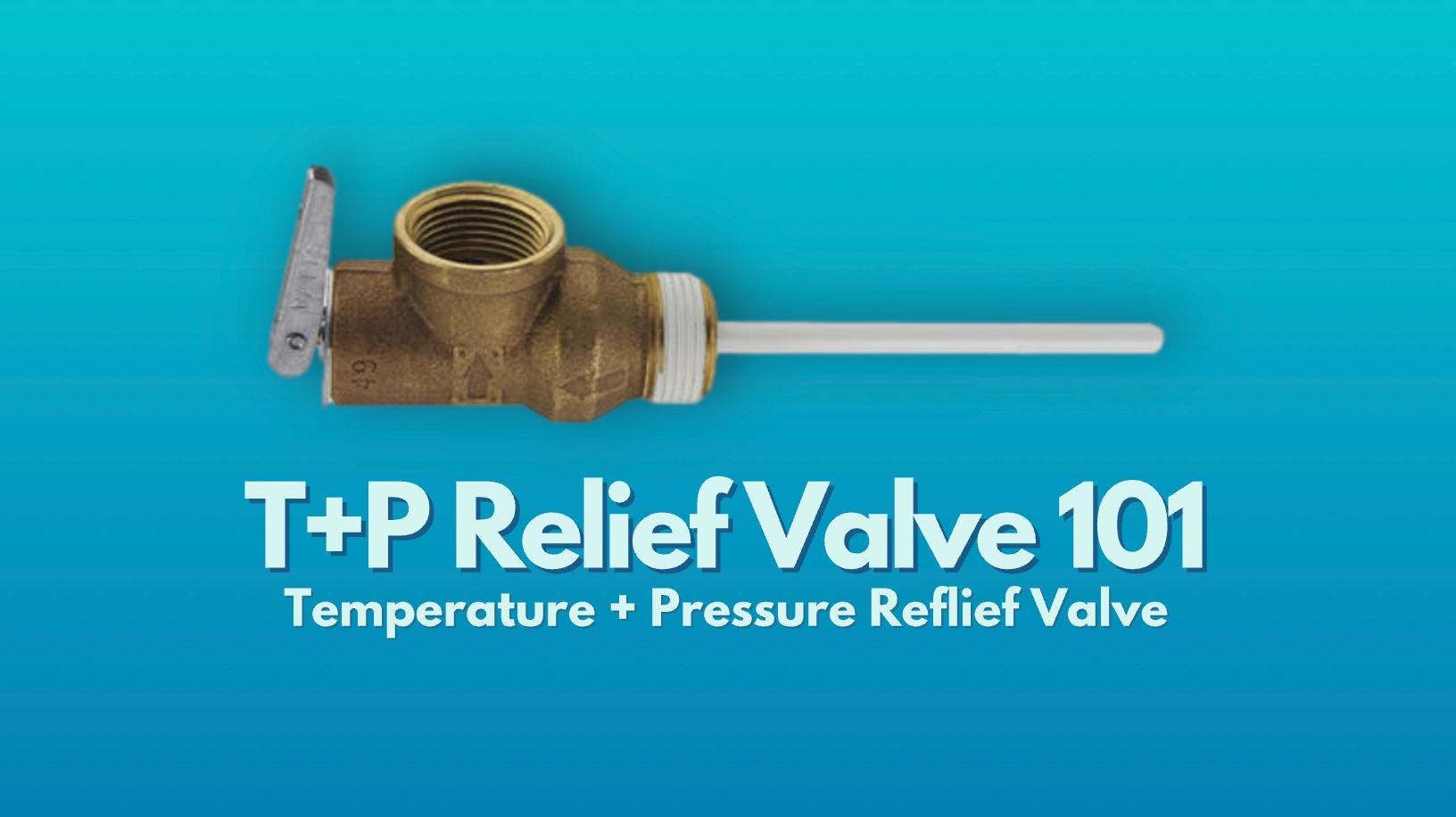Water Heater Leaks: Causes and Solutions
Last Updated: 7 June 2024
Did you approach your water heater only to discover that the hot water heater has a leak? Don’t let water heater leaks ruin your day. Instead, handle the situation and learn the different possible causes so you can prevent water leaks in the future. You’ll also learn the best ways to handle a leaking water heater.
Common Causes For Water Heater Leaks
Knowing the cause of your water heater problem can help you take the right steps to fix it and prevent it in the future. Here are some of the most common causes for water heater leaks.
#1. Open/Faulty Drain Valve
A drain valve at the bottom of the tank allows water to evacuate the water heater. In most instances, the
drain valve remains closed. You will open the drain valve to perform maintenance on the unit or to replace the unit. If you leave the drain valve open, water will leak from it.
Sometimes, the drain valve may leak even if you don't leave it open, especially if sediment buildup and other debris prevent the drain valve from fully closing. In this case, you will need to clean or replace the drain valve.
#2. High Pressure Levels & Leaking T&P Valves
Hot water heaters generate pressure; the temperature and pressure inside the water heater rises during the water heating process, which may be an additional increase in temperature and pressure beyond an already high incoming water pressure.
When pressure levels get too high, the T&P relief valve opens automatically and the excess temperature and pressure is relieved as the hot water escapes out the overflow pipe/discharge pipe that runs down the outside of the water heater. Pressure and water will escape from the temperature and pressure relief valve out the discharge pipe until the valve closes automatically.
Water pressure levels may be excessive for a number of reasons, including: high water temperatures, water hammers, and/or a broken T&P relief valve.
In some cases, the water on the floor can appear similar to a leak from the
drain valve. Technically, it’s not a leak, though. It’s the water heater working as it should. If your water heater's T&P valve leaks continuously, it could be a sign of a larger issue like high incoming water pressure.
#3. Malfunctioning Water Lines
A cold water inlet connects the cold water supply to the water heater, and a hot water connection at the hot water outlet transports hot water from the water heater to the desired location. Water heater hoses deteriorate over time, creating a leak coming from the hose itself or the pipe connection. Verify that the leak is indeed coming from your water heater hose and then replace the hose to see if that resolves the issue.
To decrease the likelihood of leaking water heater hoses, use high-quality corrugated stainless steel lines with high-quality connectors (such as Sharkbite connectors) whenever possible. Just keep in mind that quick connectors, sometimes known as push-to-connect connectors, may be prohibited by the local plumbing code. Always check your local plumbing code and building codes before picking connectors.
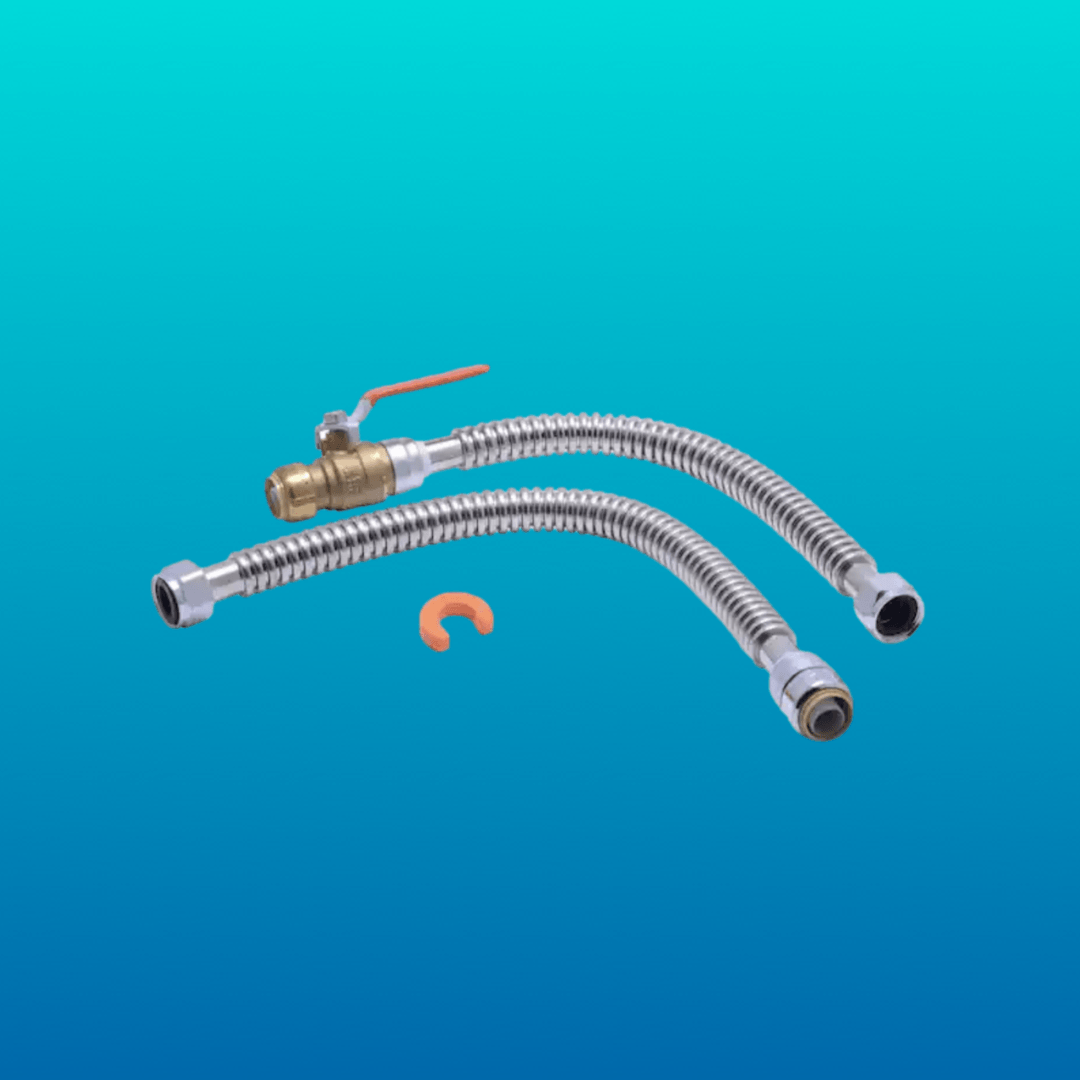
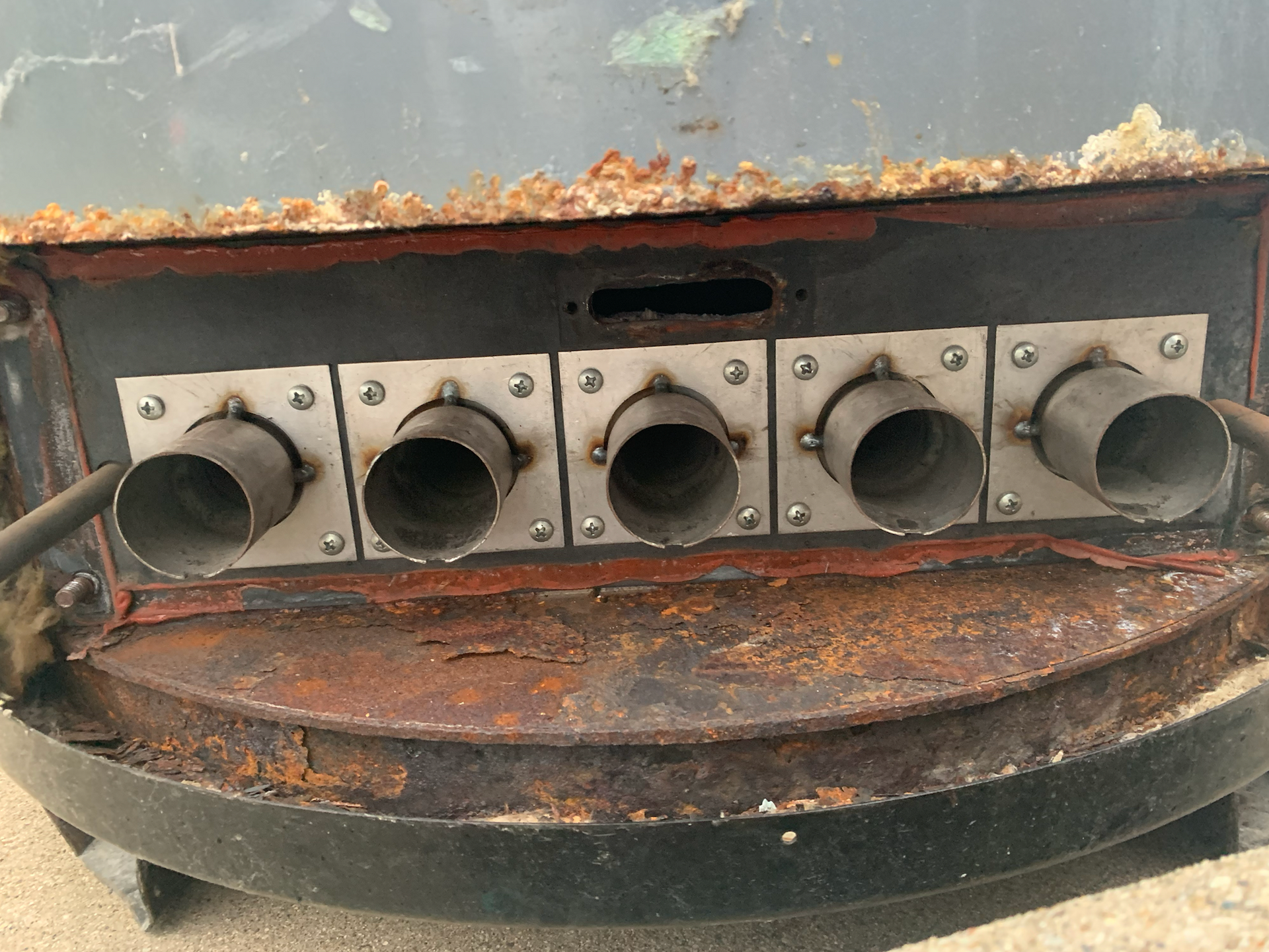
#4. Damaged/Corroded Water Tank
Water heater tanks are made up of metal that is typically coated with some type of
corrosion protection
(i.e., glass, enamel, or combination of glass or porcelain and other materials). While strong, metal doesn’t last forever.
The material corrodes over time, especially when in contact with moisture and oxygen. Corrosion refers to the natural transformation of metal into rust. When the metal corrodes and turns into rust, it compromises the structural integrity of the material, eventually leading to a leak.
SOLUTION:
Whether a water heater leak is reparable depends on the location. If the inlet water line, dielectric unions, T&P valve, or other connection or valve is leaking, it can likely be repaired by tightening the connection or replacing the connectors.
In the context of a water leak coming from your water heater tank, you will likely need to replace your water heater.
#5. Condensation
Sometimes water coming from your water heater isn’t necessarily a leak, but condensation.
Condensation occurs when water vapor in the air becomes a liquid, although it is not always visible to us. Visible examples of condensation formation most ofter occur when hot air comes into contact with cool air. The result is water droplets. Generally, condensation appears evenly on the outside of the unit itself. While not as damaging as a leak, the excess moisture can still cause water damage or trigger leak sensors.
SOLUTION:
Identify the source of the condensation and monitor its frequency: Is it related to a sudden change in temperature/weather or is it ongoing? The best way to prevent condensation is to utilize a fan and open nearby windows to promote proper air circulation.
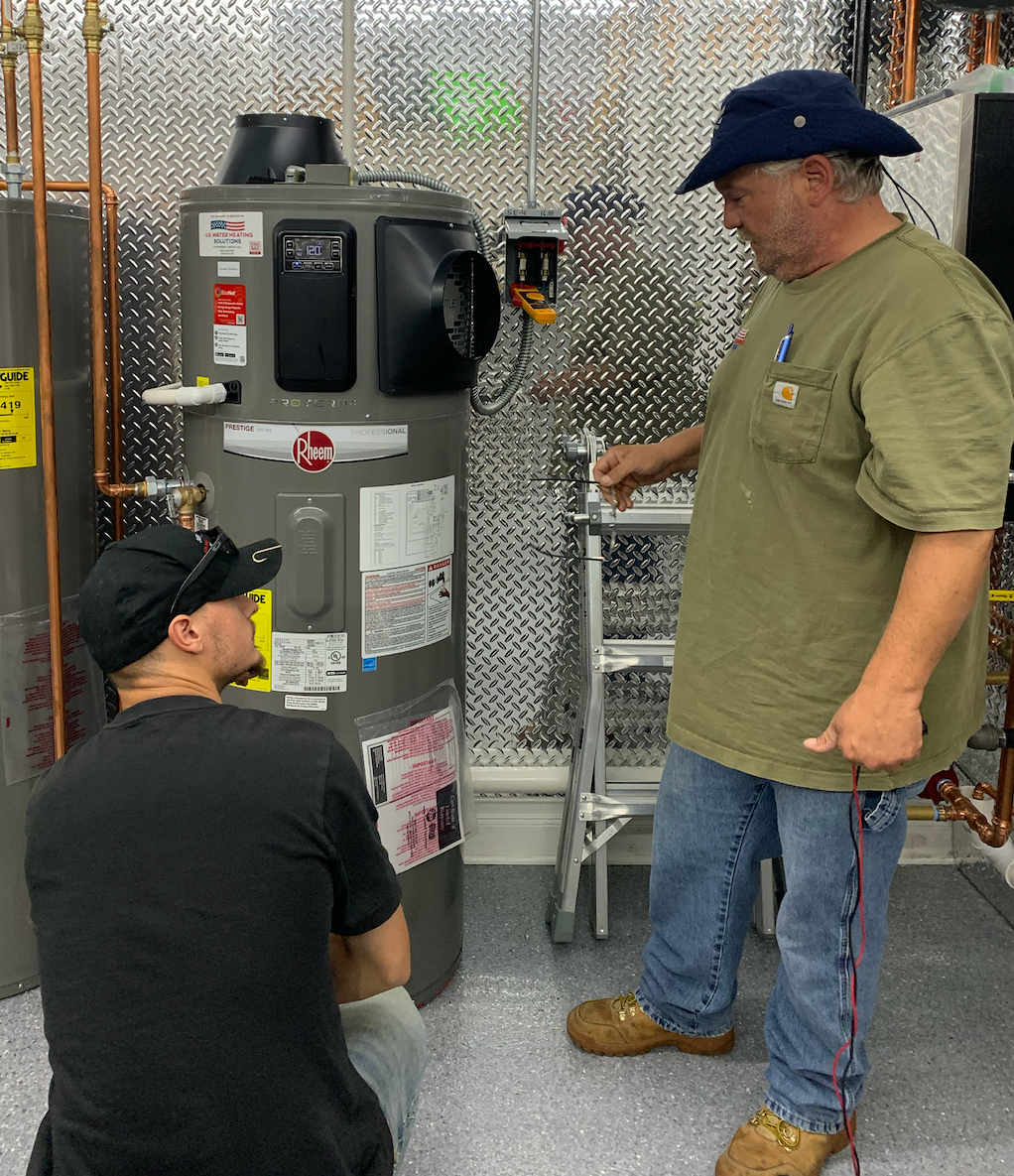
How to Prevent Water Heater Leaks
Sometimes the best offense is a good defense. Learn some of the best ways to prevent water heater leaks.
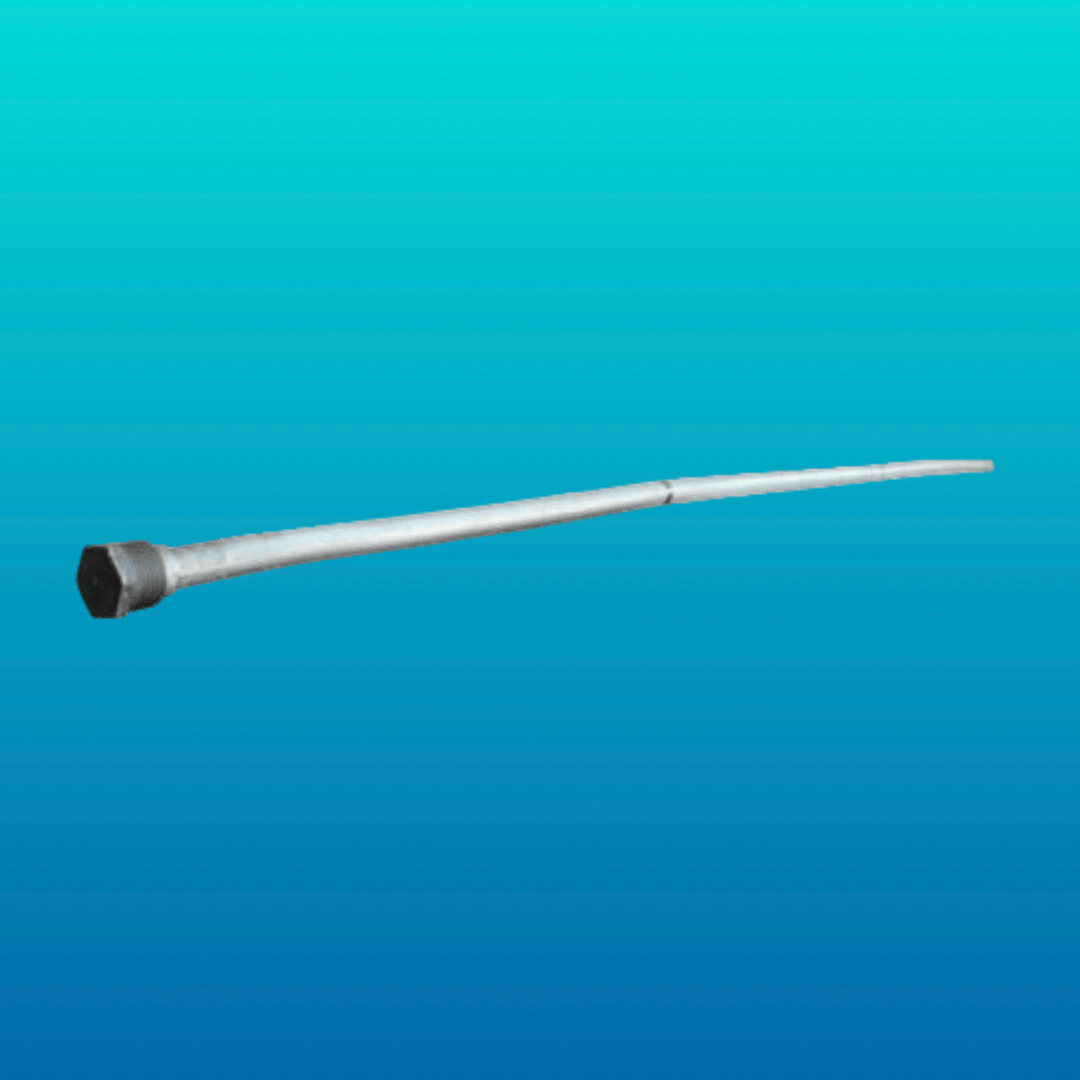
Get Regular Preventative Maintenance
Just like a car, you need to maintain your water heater throughout its life. Preventative maintenance involves inspecting and cleaning the water heater. This will keep the water heater running efficiently for as long as possible.
Change Anode Rod
The sacrificial
anode rod
inside your water heater tank attracts corrosive materials i.e., vitamins and minerals in the water that can otherwise form sediment and harm the tank. However, the anode rod itself corrodes over time, leaving the tank vulnerable again. At this point, you need to change the anode rod or allow the tank to deteriorate. On average, you will change out the anode rod every 3-5 years. Every new anode rod should be
inspected after 3 years and annually thereafter
until the condition of the anode rod dictates its replacement.
Reduce Pressure Levels
Hot water heaters generate pressure during the water heating process. Although most water heaters are rated to endure
standard operation at pressure levels of 150 PSI, sudden increases in incoming water pressure or constant fluctuation can add stress to your water heater tank. If your home or business has high incoming water pressure
(typically above 80 PSI), you will likely need to install a Pressure Reducing Valve on the water line entering your home and to ensure that you have a
thermal expansion tank for your water heater.
Some additional considerations for pressure reduction inside your water heater include:
- Pressure levels increase as temperature levels increase. Therefore, it’s best not to set the water heater higher than 120 degrees.
- Excessive pressure levels can also occur as a result of sediment buildup impacting the components inside of the unit and
water hammers.

U.S. Water Heating Solutions
When you have a leaky water heater, contact U.S. Water Heating Solutions for fast, reliable water heater service! We will provide a proper diagnosis and proceed with the most appropriate water heater repair or provide options for water heater replacement. We even have the most commonly requested parts on our trucks to further expedite repair service!
Contact us today regarding diagnosis, repair, or replacement of your leaking water heater.
Leaking Water Heater FAQs




